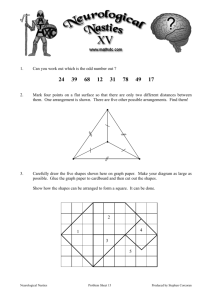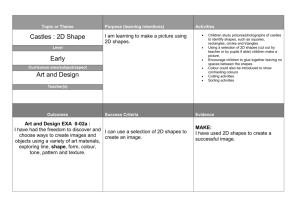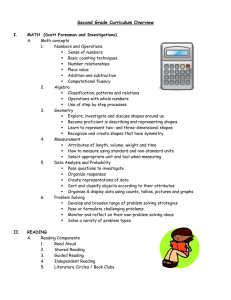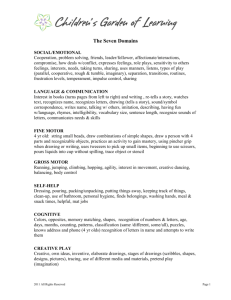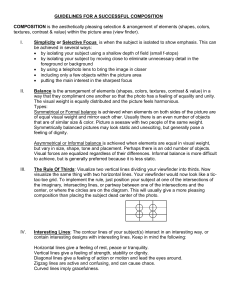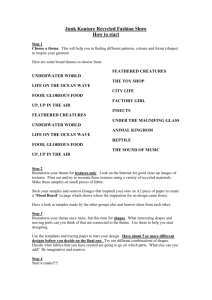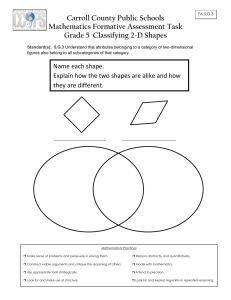Specific Context 1
advertisement
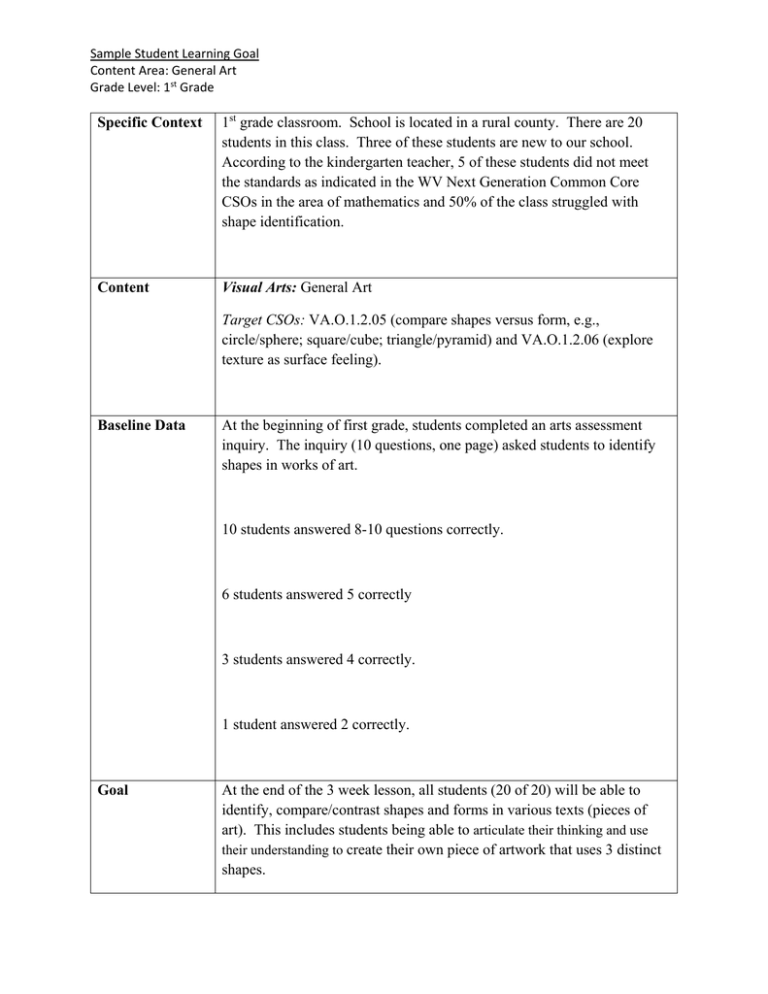
Sample Student Learning Goal Content Area: General Art Grade Level: 1st Grade Specific Context 1st grade classroom. School is located in a rural county. There are 20 students in this class. Three of these students are new to our school. According to the kindergarten teacher, 5 of these students did not meet the standards as indicated in the WV Next Generation Common Core CSOs in the area of mathematics and 50% of the class struggled with shape identification. Content Visual Arts: General Art Target CSOs: VA.O.1.2.05 (compare shapes versus form, e.g., circle/sphere; square/cube; triangle/pyramid) and VA.O.1.2.06 (explore texture as surface feeling). Baseline Data At the beginning of first grade, students completed an arts assessment inquiry. The inquiry (10 questions, one page) asked students to identify shapes in works of art. 10 students answered 8-10 questions correctly. 6 students answered 5 correctly 3 students answered 4 correctly. 1 student answered 2 correctly. Goal At the end of the 3 week lesson, all students (20 of 20) will be able to identify, compare/contrast shapes and forms in various texts (pieces of art). This includes students being able to articulate their thinking and use their understanding to create their own piece of artwork that uses 3 distinct shapes. Sample Student Learning Goal Content Area: General Art Grade Level: 1st Grade Strategies for attaining the goal Teacher will conduct “shape talks” at the beginning of each arts class using a variety of visual representations. Teacher will include pieces of art and various images during this discussion. The focus of the discussions will be on the comparing and contrasting shapes and strategies for identifying shapes in various mediums. Students will work with physical objects with different textures as well as balls, blocks, and pyramids, so they can feel and discuss the differences between various textures and shapes. Students will work together with a personalized set of flashcards that include shapes, forms and textures. Facilitate the practice of students by having them rotate to various stations and draw or write about the texts (pieces of art) present at each station. Teacher will provide feedback on their analysis and observations. Students will have daily opportunities to create quick drawings or paintings (using various mediums) of shapes and forms. Collaboration Grade level teams will meet to review the data and design supports for students. Teams will collaborate to design content lessons to support the acquisition of basic facts. Measures By the end of three weeks, in addition to repeating the arts assessment inquiry used to establish the baseline, students will create their own text (piece of art) that uses 3 distinct shapes and various textures. Students will also be able to articulate their understanding of comparing/contrasting shapes by sharing their work with classmates.
